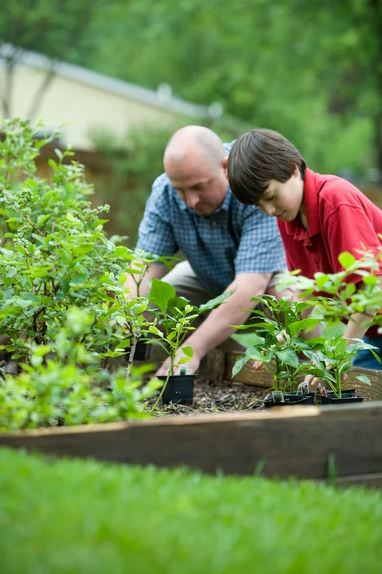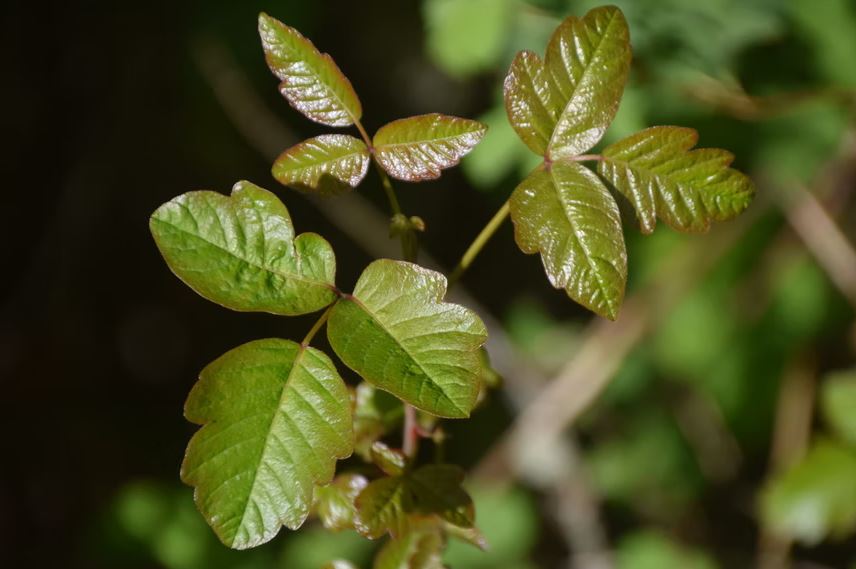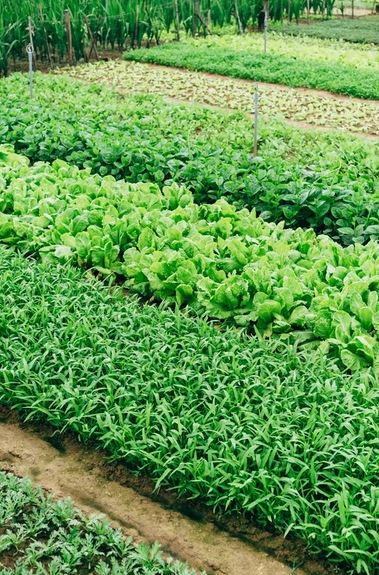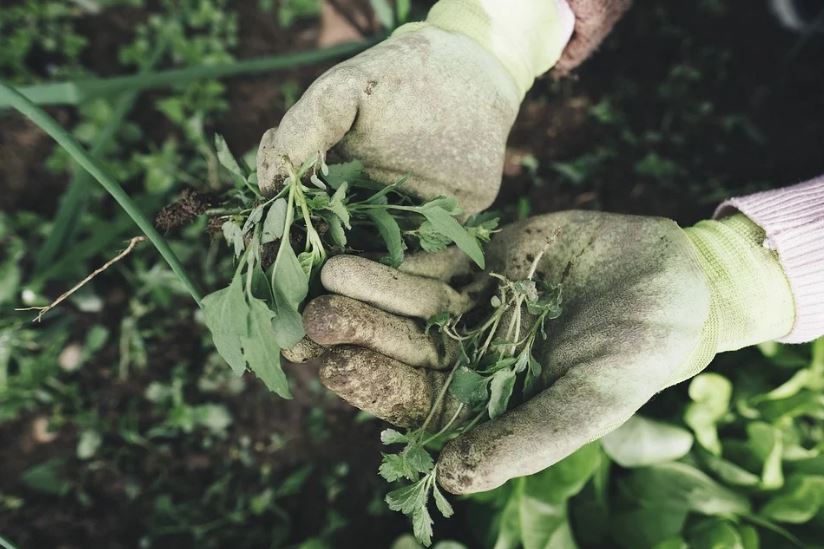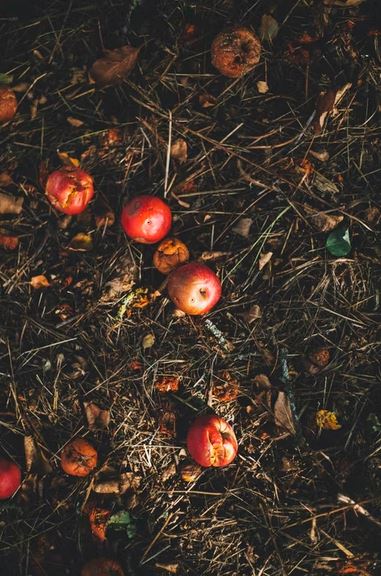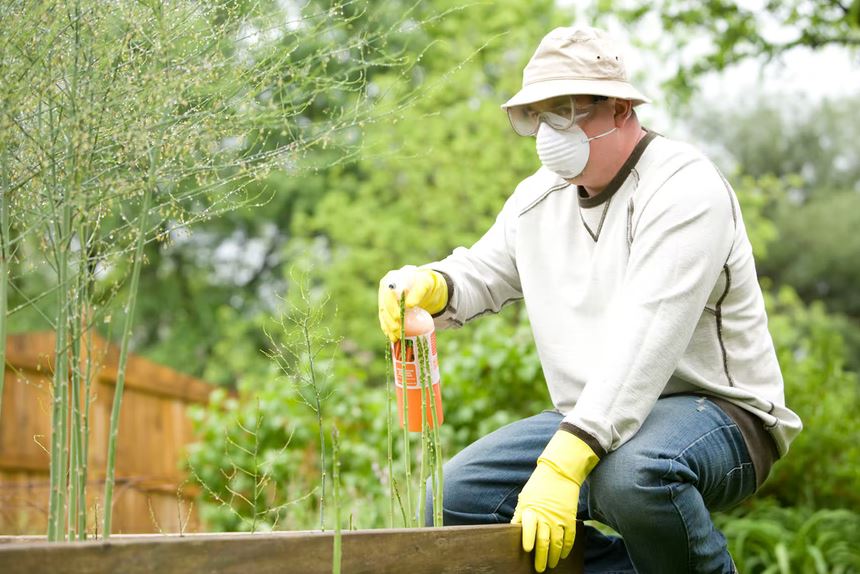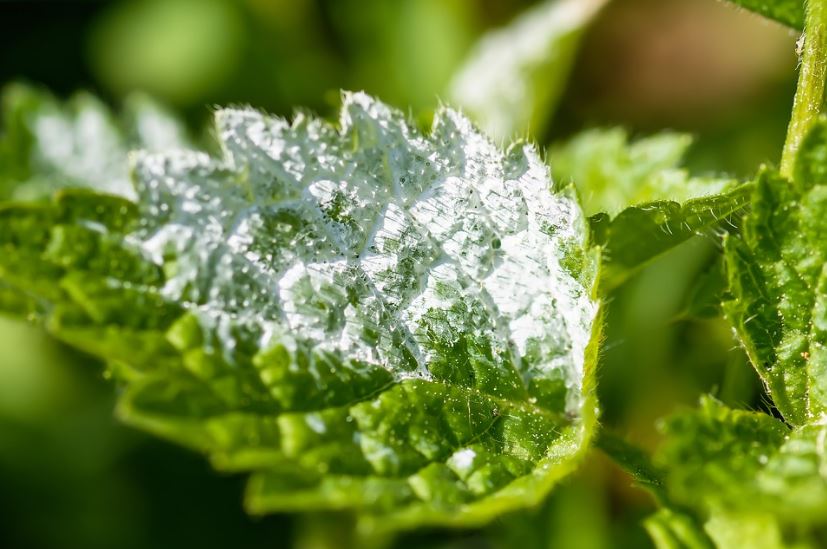You may make a pesticide out of a bar of soap as an environment-friendly option. When a large water jet is unable to spray small bugs away from the afflicted plants, environment-friendly pesticides, such as midsummer oil or moderate soap solution, become the next weapon in the arsenal. Instead of killing these pests on touch, these safer insecticides cover them and suffocate them to death.
Try using a diluted soap solution when you’re unsure if this is safe for your trees and shrubs. Start by spraying a tiny area of the plant to check if it reacts negatively, such as symptoms of burn marks emerging on the leaves.
Following are some of the main reasons for using soap in the garden:
1. Kills Poison Ivy
Soap is one of the strongest defenses against poison ivy. You can spray the soap and water mixture on the Poison Ivy plant to kill it. If your skin comes in contact with this plant’s oil, rinse it off with abrasion and cold water within a few hours to avoid a rash or an outbreak.
2. Provides Fragrance
Another good reason to use soap in your garden is because of its fresh smell. If you love to sit in your garden after a long tiring day, the fresh fragrance of soap in your garden will make you feel relaxed and calm.
3. Kills Weeds
It might sound unusual, but soap is one of the best methods for getting rid of weeds. It breaks down the cell wall of the weed, causing dehydration and the eventual death of the plant. This method is safe for use around your garden and house, as soap does not leave any toxic residue behind.
4. You Won’t Need To Add Harsh Chemicals to Your Compost or Runoff Water
Soap has been used for years by many gardeners to wash away any unwanted chemicals left on plants. This is great for organic gardeners because it negates the need to add harsh chemicals to your compost or runoff water.
If you have ever used soap in the garden, you have probably noticed that it helps break down some of the organic matter in your compost. This is great for your compost because it speeds up the decomposition process and makes it easier to use.
5. Soap Can Work As a Fertilizer, Making It Safe for You and Your Plants
Fertilizers contain nitrogen, phosphorus, and potassium (NPK). Most store-bought fertilizers have a high percentage of NPK, unlike homemade ones.
The good news is that soap contains all three of these elements! Yes, that’s right! Soap has all three basic elements needed for plant growth. Soap can be used as a fertilizer because it contains chemicals that are good for making a plant grow. This is true because the soap contains chemicals made out of oils and fats, which plants need to stay alive.
If you want to read how to make your own fertilizer at home, click here.
6. Remove Smelly Mildew from Your Garden Tools
We have all had that smell when we use our garden tools during the summer. Mildew is not only unattractive, but it can be quite harmful to your plants and soil as well. Soap is a natural way to eliminate mildew and keep your tools smelling fresh and clean.
To remove mildew using soap, follow these steps:
- Get a bar of good-smelling soap. You want something that won’t kill your plants but will remove the mildew and leave a pleasant aroma.
- Cut off a small chunk of the soap, about the size of a nickel or quarter. If you cut off too much, you could end up making your garden tools slippery or ineffective in removing dirt from plants, which is dangerous for both you and your plants.
- Rub the soap on your gardening tools in circular motions for about 10 seconds until you see the dirt coming off of them, but not completely off yet.
- If necessary, repeat this process until all of the mildew is removed from your tools, and they are shiny again!
7. Certain Soaps Help Some Plants Grow Faster
Soap is used in hydroponics gardening, and some studies show that adding soap to the water will help certain plants grow faster than they would without it.
The soap helps because it breaks the surface tension of the water, which allows more oxygen to reach the plant roots. The plant roots need oxygen in order to be able to absorb nutrients. The more oxygen they have access to, the faster they grow.
Soap can also assist with root growth by helping to control bacteria and fungi that might reside in the soil or water of your hydroponic system.
Alternative to Using Soap in Your Garden
The best option could be to buy a store-bought solution that will guard your plants while also controlling your pest problem. Industrial insecticidal soap has been improved a lot in safety and effectiveness, and it no longer harms plants. While it may not be your preferred pest solution, it is a viable, safe choice that will keep your garden growing and won’t be a bad thing you could be doing to the environment.
How Gardeners Use Soap?
Many gardeners are familiar with the usage of soap to keep filthy fingernails at bay; simply massage the soap beneath your nails to keep dirt and grime away. And, of course, nothing beats a hot, soapy bath at the end of a long gardening day. Additionally, soap can also be used to clear difficult gardening stains. Therefore, you should always keep some extra soap slivers in the laundry room.
Making your own antiparasitic soap from wasted soap slivers is also cost-effective and straightforward. Simply break up the soap slivers or shred an unscented soap bar into a saucepan with 1 quart of water and bring it to a boil. Continue to stir until the soap is completely dissolved, then transfer into a jug and top off with water.
When you’re ready to use it in the garden to combat aphids, mealybugs, and other pests, simply combine a tablespoon of the soap combination in a 1-quart squeeze bottle and use it as needed.
Research about Using Soaps in the Garden
Scientists aren’t sure how insecticidal soaps operate, but they’re considered to break the outer skin of soft-bodied pests like spider mites, mealybugs, and psyllids, causing a toxic reaction, according to Colorado State University Extension. Because the soap can’t penetrate their exterior shells, hard-bodied bugs like adult beetles aren’t impacted.
It’s possible that only a few droplets of soap in a liter of water will suffice. Adding a few drops of oil to the soap helps it stick to the plant and keep killing insects. 1 tsp. in a palm sprayer of water is advised for spraying plants indoors.
Conclusion
Soap is one of the best things to use around your home or garden. The main reason is that it has no chemicals or harmful agents to harm your plants. Another top reason soap is an excellent agent to use is that it’s cheap and can easily be obtained. It’s so easy to use, too; all you have to do is just spray your plants with soap and then watch them grow!

